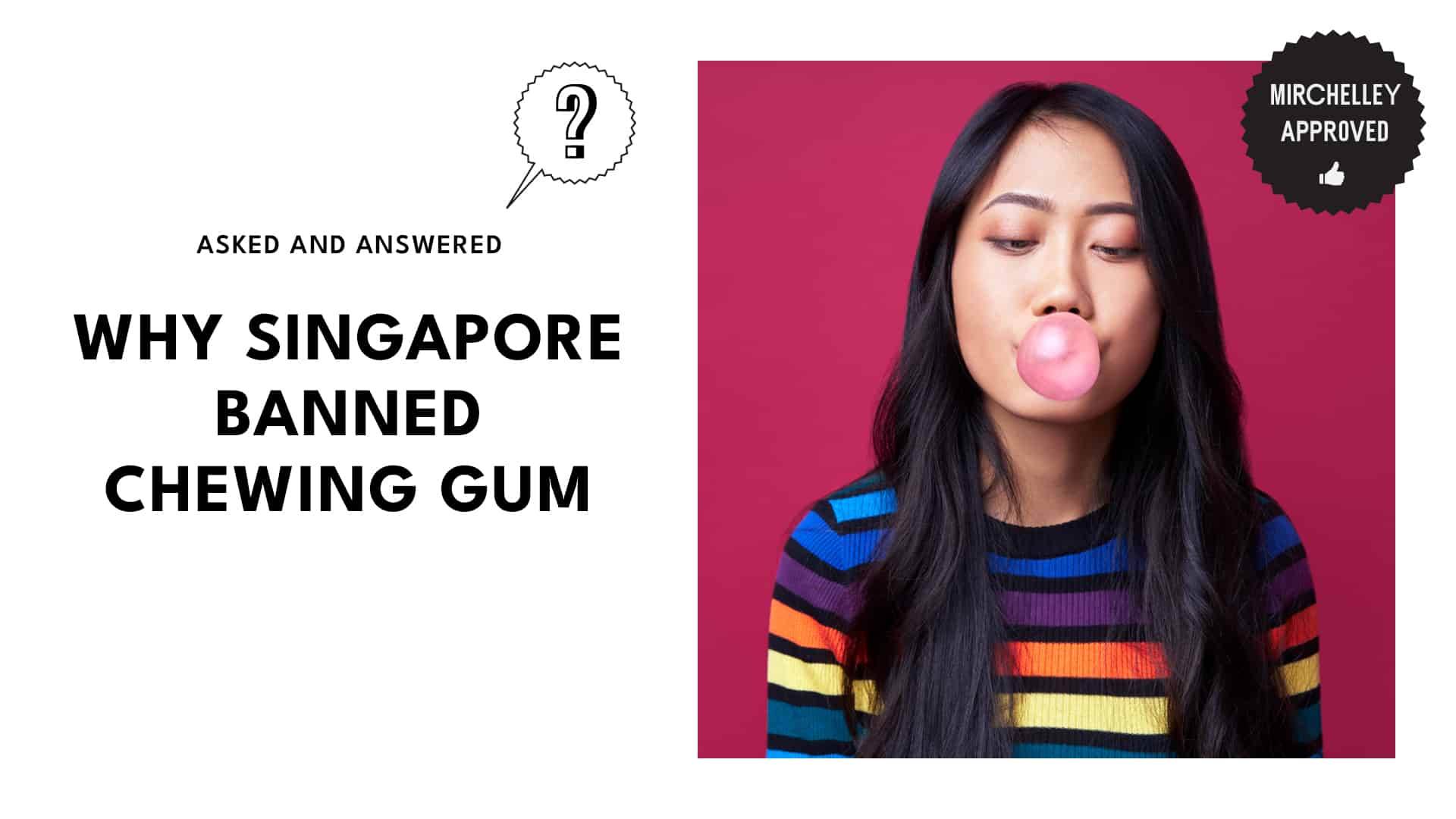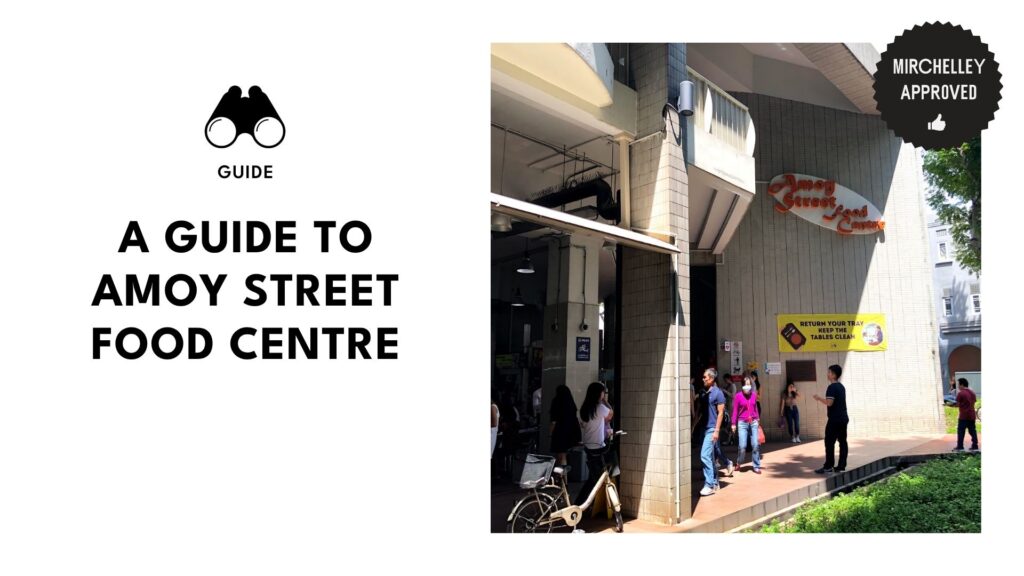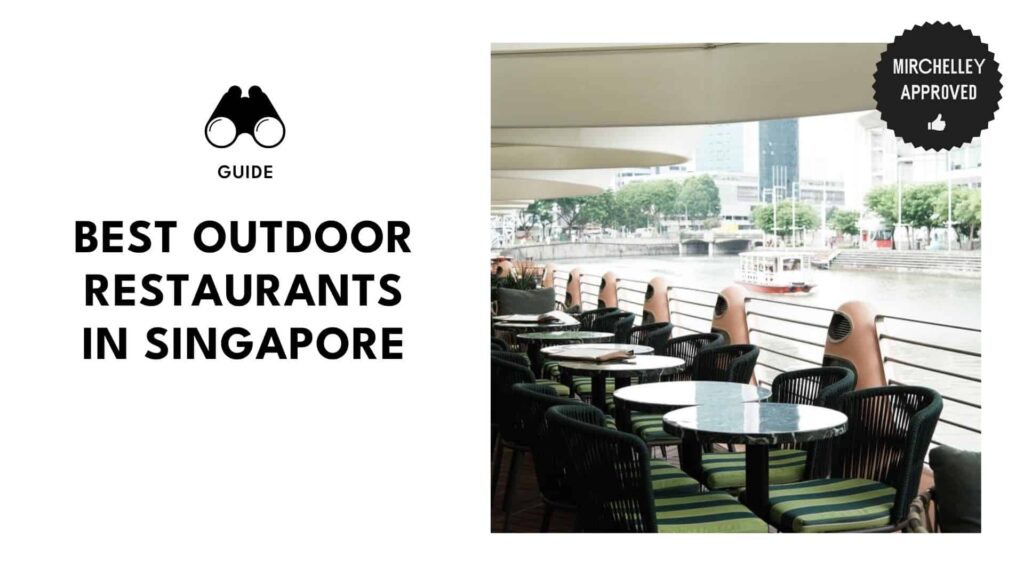Categories > Guides and Tips

The Reason Behind Singapore’s Chewing Gum Ban
If you want something minty or sweet to chew while strolling around Singapore, you might want to stick with a gummy worm or candy because chewing gum in the city-state is downright forbidden.
You might be wondering what’s up with this seemingly odd prohibition. But, good thing I got the answers!
So, let me enlighten you about the reasons behind the Lion City’s chewing gum ban.
History of Chewing Gum Ban in Singapore

A ban on the sale, import, and manufacture of chewing gum in Singapore was enforced on January 3, 1992, implemented by Goh Chok Tong, who had assumed office as Prime Minister.
The prohibition was incorporated into Singapore Statute Chapter 57, known as the Control of Manufacture Act.
The ban hit the ground running. As soon as it was announced, the importation of chewing gum came to a screeching halt. Talk about swift action!
Shops were given a grace period to clear out their gum stock, but once that timer ran out, it was game over for gum sales.
Offenders found themselves plastered all over the news, publicly “named and shamed” to send a clear message – don’t mess with the gum ban.
Do the stores in Singapore still sell gums today?

In Singapore, the ban on chewing gum extends beyond just its consumption—it’s also prohibited for stores to sell it.
Similarly, the importation of chewing gum into the country, even for personal use and not for trading, is strictly illegal.
You may still find some therapeutic gums in pharmacies though. Unfortunately, they are strictly for medicinal purposes.
So, if you find yourself feeling under the weather or fresh out of a dental appointment, you might just get a prescription for these gums.
While you might not be able to snag your favorite bubblegum flavor, at least you can still chew your cares away if the doctor orders it!
Reasons Behind the Chewing Gum Ban in Singapore

Now, let’s dive into the reasons why Singapore decided to implement such a stringent ban on chewing gum.
Vandalism

Believe it or not, chewing gum can be a tool for vandalism.
In the past, there have been instances where individuals used gum to deface public property, much like graffiti. They would stick chewed gum onto walls, doors, and other surfaces, creating unsightly and difficult-to-remove messes.
Removing these gum graffiti is no easy task. It often requires special solvents and tools, as well as a considerable amount of time and effort.
In some cases, the damage caused by gum vandalism can be irreversible, leading to permanent stains or discoloration on surfaces. Not to mention, the cost of cleaning up these gum-related messes can quickly add up – putting a strain on public resources.
Vandalized areas can create a sense of neglect and disrepair, undermining efforts to maintain a clean and welcoming environment for residents and visitors.
Public Nuisance

Ever stepped on a piece of gum while walking down the street? It’s not a pleasant experience, to say the least.
But it’s not just individuals who suffer from this gum-related nuisance; businesses and property owners also bear the brunt of the problem.
Gum stuck to storefronts, benches, and other surfaces not only detracts from the aesthetic appeal of the area but also requires time and effort to clean up.
Public Cleanliness

Cleaning up these sticky messes isn’t as simple as scraping off the gum with a spatula. It requires time, effort, and specialized equipment to remove gum residues effectively.
Municipal workers often have to use solvents or steam cleaners to dissolve and dislodge the gum – a process that can be both labor-intensive and costly.
As such, the chewing gum ban in Singapore is about preserving the cleanliness and hygiene of public spaces for the benefit of all residents and visitors.
Public Health Concerns

While most people might think that chewing gum is harmless, there are some potential risks involved.
Excessive chewing of gum can also lead to temporomandibular joint disorder (TMJ), commonly known as lockjaw.
While the condition is not directly caused by chewing gum, excessive gum chewing can exacerbate existing jaw issues or contribute to the development of TMJ symptoms.
But that’s not all. Chewing gum can also be a choking hazard, especially for young children who might not understand the risks.
Kids are notorious for putting things in their mouths, and if a piece of gum gets lodged in their throat, it can obstruct their airway, leading to a potentially life-threatening situation.
Singapore aims to mitigate these health risks by banning chewing gum.
Damage to Infrastructure

You might not realize it, but when gum is carelessly discarded, it can devastate or ruin the very systems that keep a city running smoothly.
Let’s consider the issue of drainage in Singapore during heavy rainfall seasons.
Can you imagine when rainwater flows down the streets, and carries bits of gum with it? Eventually, it will lead to blockages in the drainage network.
These blockages can impede the flow of water, causing potential flooding in low-lying areas.
Chewing gum doesn’t just pose a threat to drainage systems—it can also damage equipment and machinery.
The sticky residue left behind by improperly disposed of gum can cause equipment to malfunction or break down.
Not only does this result in costly repairs and downtime, but it can also compromise workplace safety and productivity.
Transit System Disruptions

You might not realize it, but something as small and seemingly innocent as chewing gum can have a big impact on the smooth operation of buses, trains, and other modes of transit.
If a piece of gum gets wedged in the mechanism of a train door, it prevents it from closing properly.
Not only could this pose a safety hazard for passengers, but it could also cause delays as train operators have to troubleshoot and resolve the issue.
Resource Allocation
In a busy metropolis like Singapore, every minute counts, and the efficient use of resources is crucial for keeping the city running smoothly.
Every dollar spent on cleaning up gum-related messes is a dollar that could have been invested in improving public transportation services or upgrading the MRT infrastructure.
By banning chewing gum, our country aims to minimize the time and money spent on dealing with gum-related incidents.
What happens if you spit gum on the sidewalk in Singapore?

You could face hefty fines if you’re caught discarding gum improperly in Singapore.
The fine for the first offense can range from S$300 to S$1,000. For a second offense, the fine can range from S$1,000 to S$5,000; subsequent offenses can go up to S$10,000 or even higher.
However, the exact amount may vary depending on factors such as the severity of the offense and the discretion of the authorities.
In addition to the fine, offenders may also be required to pick up litter or scrap off improperly disposed chewing gums in public areas.
But what if you’re unlucky enough to be caught twice? In some cases, repeat offenders may also face jail time.
So, unless you want to risk getting on the wrong side of the law, it’s best if you adhere to the chewing gum law of the Lion City.
How long is jail time in Singapore for chewing gum?

While chewing gum itself won’t land you immediately behind bars, certain gum-related offenses could result in legal consequences.
For instance, if you’re caught smuggling large quantities of chewing gum into Singapore for illegal resale, you could face up to two years of imprisonment.
That’s why it’s wise to stick to the rules and steer clear of any legal trouble.
Enjoying a piece of gum is one thing, but finding yourself behind bars over it? Definitely not worth the risk!
And there you have it! The ins and outs of Singapore’s chewing gum ban, from its reasons to the potential consequences of breaking the rules.
While chewing gum might seem like a harmless habit, it’s clear that the country takes its cleanliness and public order very seriously.





